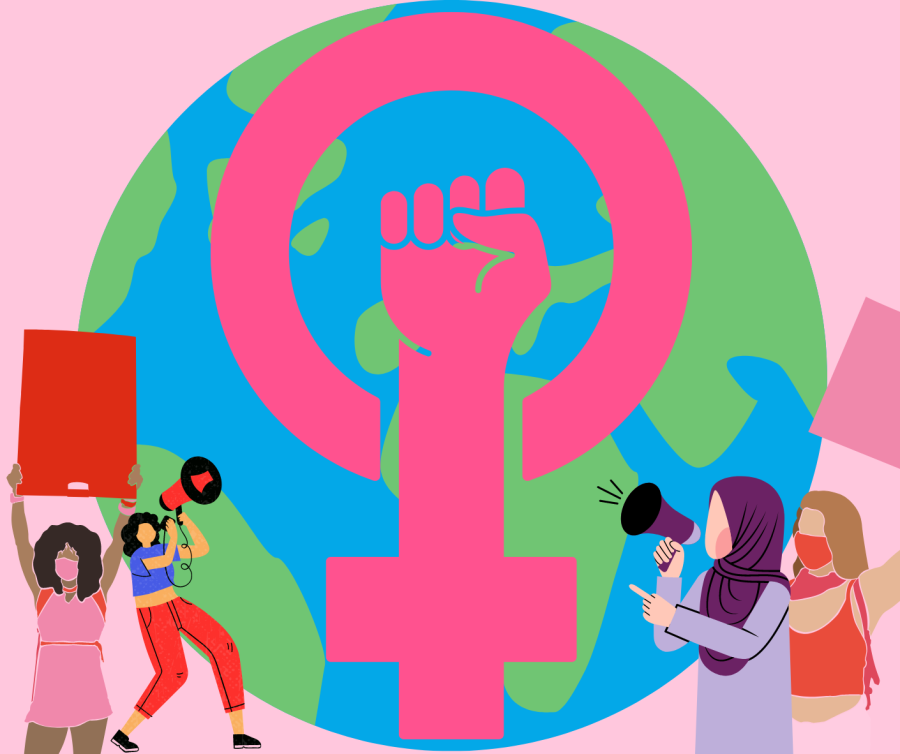A woman is killed by an intimate partner every 11 minutes.
Every day, more than 120 women are murdered by their family members, often in broad daylight, while even more are killed by governments that treat women as second-class citizens. The recent murder of Iranian woman Mahsa Amini has sparked a significant backlash in Iran, but protests have been appearing across national borders. The World Cup game in Iran was a center of turmoil, as fans were disciplined for wearing shirts protesting Amini’s murder.
Yet the reaction by the world to this news is one of the first instances of international outrage against global sexism, despite its history as a deeply-rooted problem.
The reality is that very few people are willing to address the death of Masha Amini, and even fewer care to address the underlying problem driving such a brutal act: femicide.
Femicide, the mass murder of women, is a dated problem that plagues modern society. In several countries—specifically in South America and the Caribbean—1 in 1,000 women are victims of femicide. In the U.S., the Center for Disease Control estimates that homicide kills a much larger 7.4% of all women aged 1-19. This age group is particularly vulnerable due to power dynamics between adult men and young women, linked to human trafficking and molestation.
These are the types of issues that necessitate action. The mass murder of women in a society that considers itself progressive is an incongruency of the deepest offense. Over 5,000 Native American women were missing in 2016, but the U.S. Department of Justice only formally recognized 116.
The world faces an epidemic of indifference, and curing it requires intersectionality.
A common theme emerges when observing global femicide reports—cases like the vast array of missing Native American women, the high femicide rates in South America, and the murder of Mahsa Amini—and it’s clear that many women experiencing injustice are not white.
Senior Amory Brown believes race could play a part in how much international attention these women get. “People automatically assume that women of color in other countries are persecuted and killed, so they’re desensitized. When a white woman is killed, they aren’t expecting it, and they are more taken aback,” she continued. “There’s frequent conflict in the Middle East that no one hears about, but, as soon as there’s one in Ukraine, everyone pours all their attention and money into it, which isn’t wrong, but other countries need attention too.”
These murders need global attention to pressure international governments into delivering justice to the women who desperately need it. Still, this dire issue is often overlooked.
Turning to the online spectacle of social media, many users focus on issues that don’t directly save womens’ lives, like body hair acceptance and the representation of strong women in the media. These issues are undoubtedly important, and the effects of this activism are present in the coming generations of young women. However, many are concerned with the prioritization of feminist issues.
Some, like Senior Nora Zimmermann, believe that feminism should serve to protect the lives of all women. “A problem for women somewhere is a problem for women everywhere. American women forget that, while they struggle, they still have many privileges. Reducing feminism to a hollow fashion trend or commercially successful hashtag is not enough. We need to empower women everywhere to the best of our ability,” Zimmermann said.
Women deserve protection. Femicide needs to be taken seriously to be quelled, which starts with getting the word out. The murder of Mahsa Amini, while extremely tragic, has sparked a movement in terms of international protest against femicide, and though she was murdered in Iran, the ripples created by Muslim activists have reached West.
In late October, American and Muslim protesters alike joined at the U.S. National Mall to evidence their disgust with Amini’s murder. This demonstration opened the eyes of citizens across the nation, and served as an example of what is needed to prompt change. When women from all walks of life unite to fight femicide, the whole world can mobilize to end misogyny.










savana stalkfleet • Dec 1, 2022 at 1:37 pm
Very intriguing article. Allows everyone reading to feel very connected and you did a well job of your format.